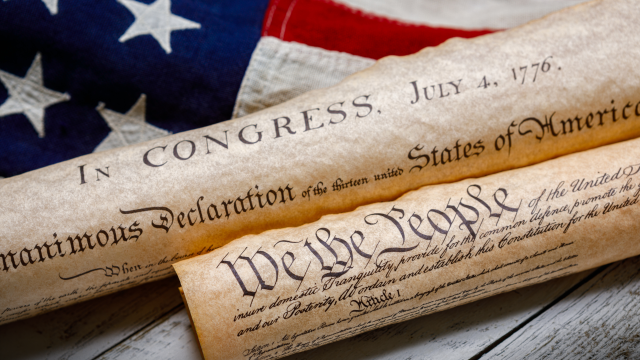07
Jul
After Congress Passes “Big” Bill, Advocates Call to Protect Environment, Public Health, and Democracy

(Beyond Pesticides, July 7, 2025) At the end of the Independence Day weekend and after the Congressional passage of reconciliation bill (H.R. 1) on July 3, ongoing legislative proposals challenge the underlying principles of the  Declaration of Independence—raising serious environmental and public health concerns and issues of democratic governance by local and state governments to ensure protections.
A new NPR/PBS News/Marist poll finds that three-quarters of Americans say democracy is under serious threat. The Declaration not only presented the case of the colonists for independence from Britain, it also created a framework for defining democracy, beginning with the statement, “We hold these truths to be self-evident, that all men are created equal, that they are endowed by their Creator with certain unalienable rights, that among these are Life, Liberty and the Pursuit of happiness.—That to secure these rights, Governments are instituted among Men, deriving their just powers from the consent of the governed,” and it continues “necessary for the public good.”
- Above all, the Declaration’s statement of the equal rights of all citizens supports the need for environmental justice.Â
- Among the grievances listed are the King’s restriction of the power of local (colonial) authorities to pass laws, “the most wholesome and necessary for the public good.” This is an important issue today, as we see attacks on local ordinances to restrict pesticides that endanger public health. Â
- The colonists also protested against the King’s obstruction of justice, which is evident today as industry attempts to prevent those injured by pesticides from receiving compensation.Â
- Beyond the Declaration, the Bill of Rights protects citizens’ right to debate the scientific findings on adverse effects of products.Â
In the spirit of Independence Day, Beyond Pesticides urged Congress to affirm the foundation of democracy by taking steps that protect the lives of constituents by:Â
- Reinstating environmental justice as a goal of federal programs;
- Affirming the rights of state and local governments to protect residents from the effects of pesticides;
- Ensuring that people have the right to be heard in court and recover damages when injured by pesticides;
- Protecting the right to debate scientific findings regarding the effects of pesticides and other toxic products; and
- Supporting organic agriculture and landcare as an alternative to unnecessary use of toxic pesticides.
On Independence Day, Beyond Pesticides called on the public to Tell Congress to protect democracy by resisting the domination of the pesticide industry and promoting organic alternatives that protect life, liberty, and the pursuit of happiness.Â
Letter to U.S. Representative and Senators:Â
As the nation celebrates the anniversary of the Declaration of Independence, a new NPR/PBS News/Marist poll finds that three-quarters of Americans say democracy is under serious threat. The Declaration not only presented the case of the colonists for independence from Britain; it also stated a framework for defining democracy, beginning with the statement, “We hold these truths to be self-evident, that all men are created equal, that they are endowed by their Creator with certain unalienable rights, that among these are Life, Liberty and the Pursuit of happiness.”Â
In view of this statement, I ask you to affirm the foundation of democracy by taking steps that protect the lives of your constituents by:Â
- Reinstating environmental justice as a goal of federal programs;
- Affirming the rights of state and local governments to protect residents from the effects of pesticides;
- Ensuring that people have the right to be heard in court and recover damages when injured by pesticides;
- Protecting the right to debate scientific findings regarding the effects of pesticides and other toxic products; and
- Supporting organic agriculture and landcare as an alternative to unnecessary use of toxic pesticides.Â
Thank you.Â










